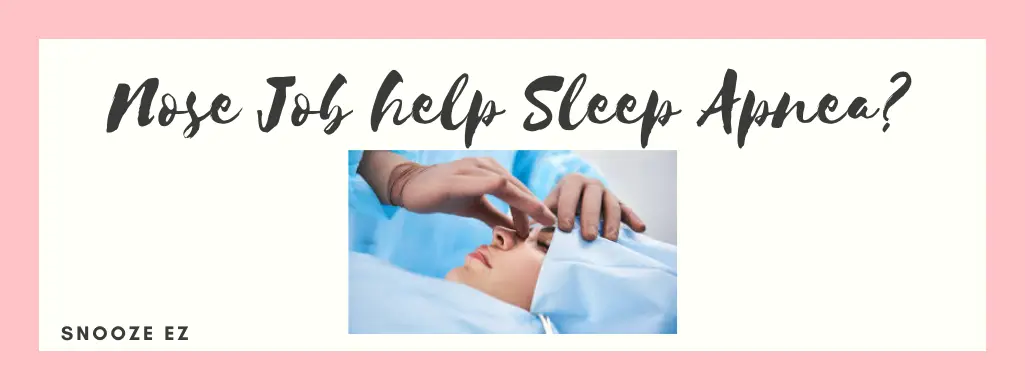Yes, a nose job can help if sleep apnea is caused by a nasal obstruction.
While there are various treatment options available for sleep apnea, the most popular being continuous positive airway pressure (CPAP) machines, there is a growing interest in exploring alternative solutions. One such solution is a nose job, also known as rhinoplasty. But, can a nose job really fix sleep apnea? Let’s delve into this topic further to understand the potential benefits and limitations of this procedure in treating sleep apnea.
What is Rhinoplasty?
Rhinoplasty is the professional term for nose job. This procedure is derived from the Greek words ‘rhinos’ meaning “nose” and ‘plastos’ meaning “molded or formed.” While it is mostly done for aesthetic purposes, such as to make the nose appear more aesthetically pleasing, Rhinoplasty can also be done for functional reasons. One of these functional purposes would be to improve breathing. Someone who might suffer from sleep apnea should not proceed with rhinoplasty unless they are sure of this condition. If it is determined that sleep apnea exists, a doctor may suggest a CPAP (Continuous Positive Airway Pressure) machine instead of rhinoplasty.
In addition, any potential patient should always consult with a board-certified plastic surgeon prior to undertaking rhinoplasty. Not only can he or she evaluate your cardiovascular system prior to the procedure, but they will also thoroughly review your medical history in order to determine if you have any contra indications which could make rhinoplasty potentially dangerous or ineffective. Furthermore, an experienced surgeon should be able to accurately assess the contours and structure of your face so that you get a nose that looks natural and fits your facial features.
Types of Sleep Apnea
Before discussing the potential effectiveness of rhinoplasty in treating sleep apnea, it is important to understand the different types of sleep apnea.
Obstructive Sleep Apnea (OSA)
This is the most common type of sleep apnea and is characterized by episodes where a person’s breathing stops for 10 seconds or more due to a blockage of the upper airway. This blockage is usually caused by the relaxation of the throat muscles during sleep, leading to loud snoring and difficulty breathing.
Central Sleep Apnea (CSA)
This is a less common form and is characterized by episodes where a person’s breathing stops because the brain fails to send signals to the muscles that control breathing.
Can a Nose Job Fix Sleep Apnea?
In some cases, a nose job can help fix sleep apnea. A study completed by the National Institutes of Health showed that in select patients, where a nasal obstruction was causing a blockage, functional rhinoplasty significantly improved their symptoms of sleep apnea. A functional rhinoplasty is designed to open up nasal passages that may be blocked or restricted. By opening these passages, the patient’s airflow is increased and this can reduce or even eliminate the risk of developing sleep apnea. However, it is important to reiterate that this type of surgery is only recommended for those who have mild to moderate sleep apnea or whose sleep apnea is caused by a nasal obstruction.
For instance, if you suffer from a deviated septum or enlarged turbinates (structures in the nose that can limit airflow), then functional rhinoplasty might help relieve your sleep apnea symptoms. Additionally, if your sleep apnea is caused by a combination of factors such as obesity, then rhinoplasty may help improve the quality of your sleep but it will not be a cure-all.
Conclusion
While rhinoplasty can be an effective treatment for those suffering from mild to moderate forms of sleep apnea, or whose symptoms are caused by a blocked nose, it is important to note that there are other treatments available as well. Before deciding if rhinoplasty is the right choice for you, speak to your doctor about all of the available treatment options and make sure to get their professional medical advice.


